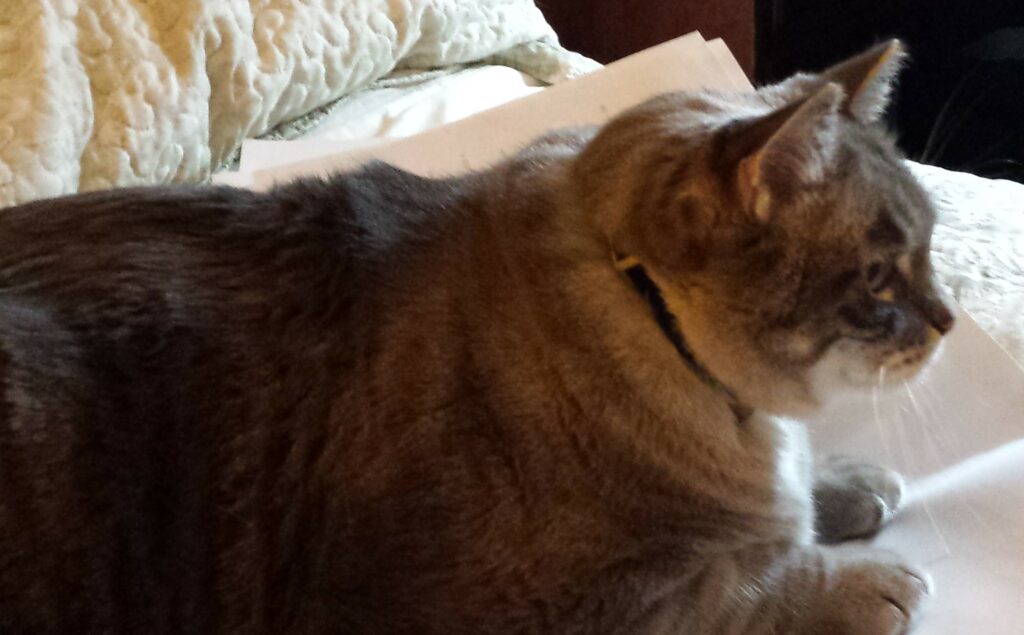We hear a lot about beta readers these days—those whom we seek out to test our writing’s effectiveness. Here are three tips for finding good beta readers.
Writing Tip for Today: How can we locate beta readers and what should we expect?
Ready for Primetime
Before you approach a potential beta reader for your work, you’ll want to be as certain as possible that you’ve revised your work to a publishable level. Sometimes, when we’re enthusiastic about a story, writers can be premature in getting it “out there.” One of the main mistakes I see in student writing is for the creator to imagine everything more clearly than any reader can.
This gap between imagination and what is on the page can leave readers scratching their heads. Most of the time, a confused reader is a nonreader. People will quickly give up on reading a story if they aren’t sure about basic things such as where the character is, when it is in the story or why the character is doing or not doing a specific action.
In your mind, you’re viewing the scene will fine detail. Readers need only understand the most important of these details. I think it’s best to orient your reader in the first line of every scene. Tell us who is narrating, where they are and when they are before you add in other details. Try not to open new scenes with dialogue until readers are sure of the who, where and when. If you write a line of dialogue before we know who’s in the scene and can imagine a place and time, we’ll need to re-read that dialogue after we figure out who said it.
Looking for Mr. Reader
Sounds obvious, but only in rare cases should you get a close friend, your spouse, your mom or your Aunt who-was-an-English teacher to be a beta reader. In general, those closest to you can and will project what they know about you onto the writing. They will be working with far more information than a stranger.
When you search for beta readers, I think it’s important to look for readers who regularly read your genre. Don’t ask a sci-fi enthusiast to read your literary work unless you’re convinced she has wide-ranging tastes. Try to find people who read what you write—a romance reader has different expectations about the story than a horror or thriller reader.
If you must employ a reader who only reads in a narrow genre, alter your expectations accordingly. The type of story preferred will influence perception and reactions to action, dialogue, pace and descriptions. Look for readers who are excited about the same kinds of stories as yours.

A romance reader has different expectations than a horror or thriller reader.
The Perfect Beta
The ideal beta reader is someone who enjoys the type of fiction, memoir or nonfiction that you write. Life isn’t always so neatly arranged, though. So how do we find good betas? Start with a critique group. The writers you meet with to gain feedback may volunteer to read your novel or other book. In some groups, member swap material as betas, giving one another valuable insight. You can also pay a beta reader, but I think you can start out closer to home.
Beware, though. Your group knows you well, from interacting regularly. Crit group members can be either severe or too lenient in their feedback. Also, many writers have their own pet peeves and can get hung up on grammar or writing rules that “real” readers wouldn’t notice. Think of the member who can’t abide any “ly” words, or the person who tells you how your story should unfold or what your character should do. It’s your story.
One great way to find quality beta readers is to join social media groups as you work on building your writing platform. There, you’ll form relationships to grow a readership. Many readers will feel flattered to read a manuscript as it’s taking shape. Plus, you will start to build a following. Check out the many groups of readers on Facebook, Insta, Twitter or Tik Tok. Get to know some and then ask for advance readers.





I wish I’d read this before giving my first six chapters to a beta readers. 🙂
Hi J Balconi,
You can certainly ignore the feedback you received if you wish, re-revise and find some worthy beta readers. I hope writers will be sure they are really finished with their edits before trotting it out to the betas.
Keep Writing!
Linda